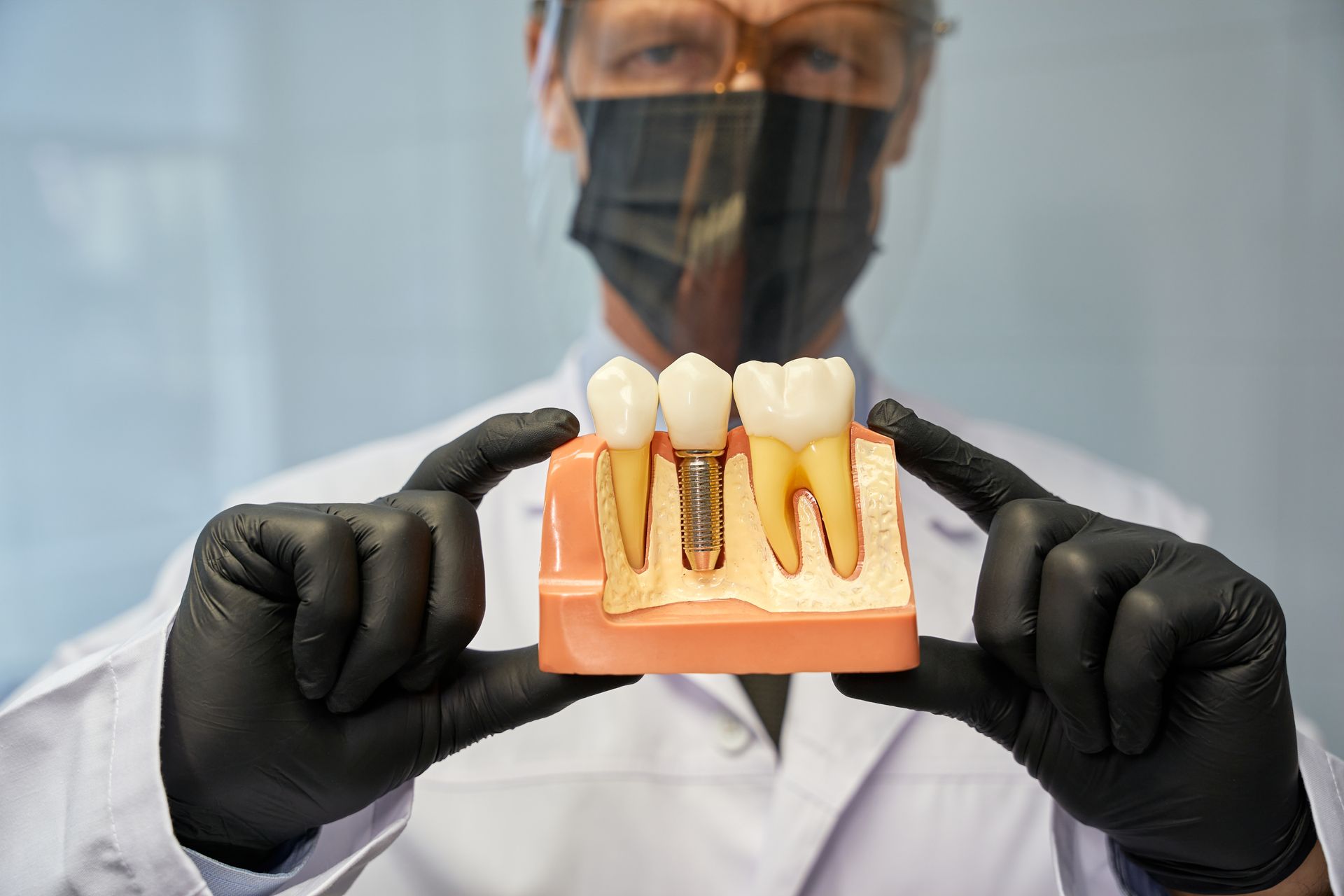The Complete Guide to Dental Implant Maintenance

Learn the Proper Care for Dental Implants
Dental implants help countless people project confidence in their smiles and can last for decades. However, a high level of care must go into maintaining replacement teeth for good oral health. Receive an overview of dental implant maintenance in this helpful guide from the experts at Tampa Dental Implants.
How to Maintain Dental Implants
Before getting a dental implant, your dentist will review the steps you must take in order to get long-lasting results. Follow the tips below to get the most out of your dental implant and maintain good oral hygiene.
Brush Your Teeth
Brushing your teeth promotes dental health, regardless of whether you have a mouth full of natural teeth or dental implants. When it comes to dental implant maintenance, patients should be careful around the implant site and use a soft-bristled toothbrush to clean all sides of the crown. Brush twice daily using a toothpaste that specifically caters to dental implants.
This not only helps remove food particles and stains from the surface of your teeth but also helps avoid gum disease. Prevent tooth decay and damage to your implant by brushing regularly.
Use an Antiseptic Mouthwash
Although the crown of a dental implant is artificial, it can harbor plenty of bacteria and impact your oral health. Dentists urge patients to rinse their mouth with an antiseptic mouthwash as part of dental implant maintenance. Swishing the solution around all areas of your mouth for 30 seconds will kill harmful bacteria and food particles between the teeth.
Floss Every Day
Remember to floss all of your teeth, including your dental implant. This helps remove stubborn plaque around your gum line and prevents periodontal disease. You can use either a floss threader or a water flosser to hit hard-to-reach areas around your mouth.
Attend Regular Cleanings and Dental Examinations
Brushing, flossing, and rinsing every day will help boost your oral health. However, plaque and tartar can still linger on your teeth, and only a registered dental hygienist can remove. Make sure you keep up with regular teeth cleanings and checkups with your dentist.
The dentist will look at your mouth structure with X-rays and check for any issues with your implant. You'll leave each appointment with polished teeth and peace of mind that your implant is in good condition.
Make Certain Dietary Changes
You now know how to maintain dental implants with oral health practices, but you might still have to make some lifestyle adjustments. Below are some expert recommendations for dental implant maintenance:
- Consume foods high in calcium and vitamin D: Calcium and vitamin D promote bone health and strong teeth. Eat foods that contain these essential nutrients, such as dairy products and leafy greens.
- Limit sugary and acidic food and beverages: Foods and drinks that contain a lot of sugar or acidic elements can reduce the longevity of your dental implant and cause your natural teeth to decay over time.
- Don't bite on hard objects: If you often chew ice or bite into hard candies, be mindful that this can potentially damage your dental implant. Avoid chomping down on hard objects to keep excess pressure off of your implant.
- Drink more water: Hydration is key for your overall health. Your oral health, in particular, can benefit greatly when you consume a lot of water.
Frequently Asked Questions
Do you still have questions about dental implant maintenance? Get the answers to some common questions patients ask regarding dental implant care.
What Does a Dentist Look for During a Dental Implant Checkup?
Dentists usually look for changes in bone density during your appointment. This dictates if they need to make adjustments to your implant.
How Should You Brush Your Teeth with a Dental Implant?
Brush twice daily using a soft-bristled toothbrush and toothpaste specifically for dental implants. These products will keep the artificial crown clean and won't damage the implant.
How Long Do Dental Implants Last?
With proper dental implant maintenance, the crown can last up to 20 years. You might need to replace it earlier if you fail to care for your oral health.
Can Plaque Grow on Dental Implants?
Yes, plaque and bacteria can form on the porcelain crowns of dental implants as well as your natural teeth. If you don't clear away plaque by maintaining good oral health, you risk inflammation and a condition called peri-implantitis, which can lead to bone loss.
Let Tampa Dental Implants Transform Your Smile
Now that you know the basics of dental implant maintenance, it's time to choose an experienced dentist to guide you through the procedure and its aftercare. Visit Tampa Dental Implants to discuss this tooth replacement solution and whether it's a good option for you. Call our office at (813) 212-2628 to set up an appointment today.






